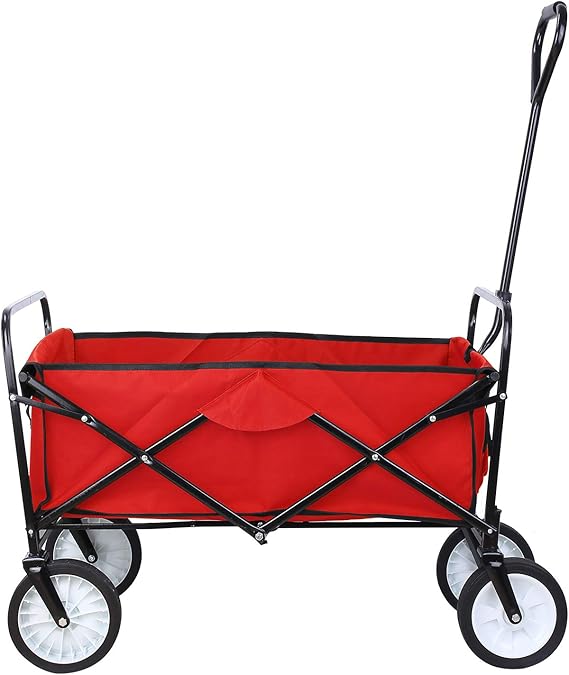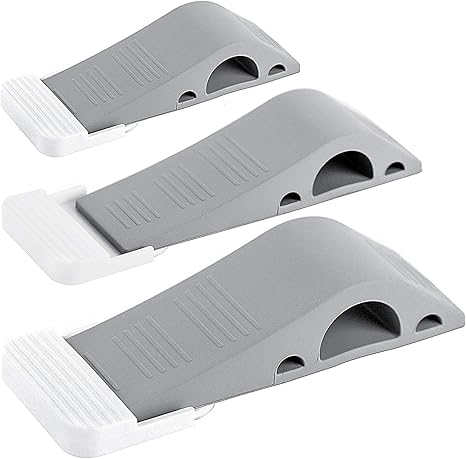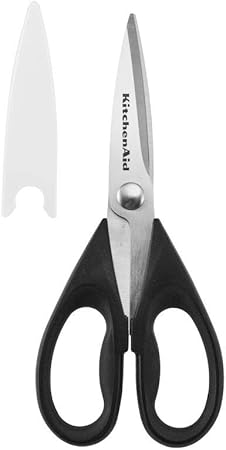College Life
College Move-In Day Hacks – The Comprehensive 2025 Guide
From move-in day college essentials all the way down to what you should wear the day of, preparation is key to an efficient, stress-free move into your dorm or residence hall.
Published
4 years agoon
By
Katrina Ngo
This post probably contains affiliate links. Our full disclosure is long, but you can find it here.
Whether you’re an incoming college freshman, a sophomore who was never able to move out of the house last year, or just a college student excited to see their friends again in person, it’s more important than ever to begin preparing for your momentous college move-in day now.
From move in day college essentials all the way down to what you should wear the day of, preparation is key to an efficient, stress-free move into your dorm or residence hall.
College Move-In Day Tips
The biggest problem with planning for your big day always lies in where to start. Should you organize packing first? What about your roommate(s)? Wait, is parking even available near your dorm?
With all the anticipation that comes with move-in day, remember to take a step back and a deep breath.
Everything will get done on time, and, if not, it’s okay! Before you know it, you’ll be moved in and enjoying the excitement of your new college space.
But before we get too far ahead of ourselves, here are 10 college move-in day tips, ordered chronologically! Treat it like a move-in day schedule of sorts, and feel free to print this article out so you can check everything off.
1. Plan With Your Roommate
The first major thing you’ll need to do is check in with your assigned or chosen roommate(s). Better yet, if you know who you’ll be sharing your entire suite or apartment with, it would help tremendously to get into contact with them, too.
A lot of colleges provide contact information on their housing websites, so feel free to reach out. After all, you’ll most likely be living with them for the next year (or more!).
Creating a group chat with everyone helps with setting up a consistent mode of communication.
As an undergraduate senior at the University of California, San Diego, I’ve heard enough horror stories of miscommunications with roommates. You can easily avoid all the drama by talking with them now.
As for important questions to ask or discussions to have with your future roommate(s), I’ve provided a list of valuable topics below:
- Who wants which bed/closet/desk? Be sure to check with your college for the layout of your dorm room.
- Who’s bringing what? You don’t want everyone to bring Brita filters when you can all just share. Consider and ask which items can be shared among all of you to save money and time.
- When is everyone planning or scheduled to move in? It can be helpful to compare with your roommate(s) so that you can easily coordinate move-in times. Moving in at the same time might create a bit of chaos with your families squeezed into the same dorm room.
2. Prepare Necessary Information & Documents
Review all the personal information you need to check in on the day you move in. Many colleges post a list of documents on their website, so be sure to double-check before you leave your house.
Usually, college move-in day volunteers will ask you to show some form of ID and then require you to fill out registration paperwork.
It would be beneficial to have emergency contact information on hand as well as any confirmation or ID numbers the school might have emailed or sent to you in advance.
It’s especially important to know and stick to the specific schedule that your college might have personally laid out for you.
If your school doesn’t provide that, plan out a timed schedule for yourself according to your designated move-in day and time.
Colleges often assign a move-in time for students in order to prevent them from arriving in huge droves and overwhelming volunteers.

3. Location, Location & Parking!
When you first arrive on campus, getting lost is the last thing you want to deal with.
Researching or even printing out multiple maps (in case you lose one) of the college campus can easily help you to trace out the path you and/or your family can take.
If you already know which building or general area you’ll be living in, you can also start planning for where you might park or where your family can drop you off and unload some items.
Remember to check your parking or drop-off zone with reference to your dorm. That way, you won’t be lugging your items across a huge stretch of campus.
4. Order/Ship Items You Don’t Need Right Away
While this tip can especially help out-of-state or international students, it also applies to those preparing for a road trip to campus.
Before you even leave for college, you can start organizing what items you want to take on the trip and what items you can buy and ship ahead of time.
For bigger items like fans, lamps, extra drawers or cabinet space, you can choose to ship them or even order them for in-store pickup.
If you choose to do the latter, be sure to check how far away the store is from campus and whether or not you can take a car or bus to pick it up.
Also, look online or call your school before you ship to ask if the campus mailroom will be open during the delivery dates.
You don’t want to have the issue of returned or undeliverable packages along with the stress of moving in everything else.
5. Pack Smart
It’s a well-known fact that, if you don’t plan to pack smart, your desire for a quick, efficient unpacking will definitely go to waste during your college move-in process.
That said, I’ve written a list of packing hacks and recommendations you should consider before you start:
- Prioritize what you know you’ll actually need and use. If you’re attending a school in the north but are originally from the south, you should make sure to pack and/or buy thick winter coats and boots. If the opposite is true for you, perhaps leaving behind those thick coats will leave space for swimwear and flip-flops.
- Rid yourself of any extra packaging that might take up unnecessary space. Maybe you can fit multiple items in the box for your lamp, or perhaps the Brita filter can sit on its own in the backseat.
- Keep hanging clothes on hangers. This hack was something I had never heard of until now, and it’s genius! Rather than packing away all your clothes and then having to hang them all up again, keep your hanging clothes on their hangers and hook them to a pole or stick. That way, when you move in, all you need to do is hang them in your closet space.
- Pack like items together. This way, when you arrive and start to unpack, you won’t be scrambling from one container to the next searching for your toiletries or kitchenware.
- Organize your vehicle. This goes along with the tip above as you’ll want to plan for what you might need to unpack or use right away instead of the items that aren’t as urgent. Things like tools, cleaning supplies, bedding and essential clothing should go in the back of your vehicle since they’ll be the first items you can access.
- Protect your stuff! Tape the lids on storage bins and drawers so that they don’t accidentally open and spill onto the street when you pull them from your vehicle. Protect other fragile items with bubble wrap or secure them in a tight space.
Another genius idea that I’ve decided to leave as the very best and very last packing smart hack is to pack an essentials bag.
Whether it be in your backpack or a duffel bag, pack a few nights’ worth of clothes, toiletries, and other items in your essentials bag.
That way, after moving in, you have direct access to items like your toothbrush, phone charger or a change of clothes so you don’t have to rummage through your boxes for them.
6. Bring Snacks
Even if you plan to arrive on a full stomach, the process of moving into your college might still cause you to grow hungry or thirsty from all the physical work.
Rather than losing your parking spot just for a quick lunch, bringing snacks and/or water will surely help you in regaining some of your energy.
If you want, you can bring a little extra to share with your roommate(s) later down the line, too!
7. Ask Questions
So, you’ve prepared all you can, and you’re finally on your way to your college campus.
The next thing you can start preparing is a list of questions you’ll want to ask the move-in volunteer staff about anything concerning your registration or move-in process that you couldn’t figure out otherwise.
I’ve also come up with a list of potential questions if you’re still having trouble:
- When/where do I get my key?
- How do I access my dorm? Depending on the college, some dorms might have an extra code to type in or a specific security lock system.
- Are there any move-in resources available to me? Some colleges provide move-in carts or even have volunteers assigned to help you with your items.
- Where is the nearest bathroom?
- Do you have a map?
And, as always, you should ask for directions to your dorm, even if you know it already! Not only can your map be a little outdated, but the volunteers might know of some shortcuts you can take to avoid the crowds.
8. Get the Lay of the Land
Once you finally arrive on campus and check in with the volunteers, it’s important to get the lay of the land before you start unpacking your vehicle.
Do a quick run from your parking lot or drop-off spot to your dorm. Keep your eyes peeled for bathrooms, trash dumpsters and any potential shortcuts you and/or your family might be able to take.
It’s better to be at least a little more familiar with your space instead of getting lost or trudging through unknown paths.
9. Unpack Strategically
Before you even open one box, you should strategize your unpacking process by placing containers and items in “zones” of your room(s).
For example, you should leave your toiletry boxes in the bathroom, kitchenware in the kitchen space and bedroom essentials in your dorm room.
This way, you won’t be rushing from one place to the other to put things away. Plus, you can then decide where you’d like to start and spend time unpacking there.
Another tip is to start with unpacking larger items like lamps and/or drawers first. Once you’re able to set them up, you can begin adding all the little things.
Many people have also suggested making your bed first. This way, you can lay out other items on your bed to free up space in your room.

10. Give Yourself Grace
Last but not least, remember to give yourself grace in the process. It’s okay if things don’t go exactly to plan.
Moving into your college dorm can be stressful, but it’s the first step in beginning your exciting college experience.
College Move-In Day Essentials
Are you stuck with figuring out what else you should buy or bring to ensure your college move-in day goes as smoothly as possible?
You’re in luck! I’ve curated a list of move-in day essentials that are sure to help. (All items are from Amazon.)
It’s definitely true that moving your boxes with wheels makes the work much less tiresome. In terms of choosing between a cart or dolly, consider using a cart if a lot of your items don’t have lids or might easily fall when stacked. You can use a dolly for large boxes or stackable materials.
If you’re looking to use a dolly, I’d recommend bringing bungee cords to secure items and prevent them from falling off.
Though most colleges offer students move-in carts to help transport materials, it’s honestly so much easier just to bring your own. That way, you can avoid waiting or having to return carts at the end of the day.
Whether it’s accidentally tripping over your luggage or cutting your finger on your registration paper, a first aid kit can come to the rescue with its extra bandages or antiseptics.
Check the weather the day of because move-in days are often at the end of the summer! Bringing a fan along can keep things cool and less sweaty as you move around to unpack.
I don’t think you even want to imagine getting accidentally locked out of your dorm while moving in! Grabbing these door stoppers and sliding them underneath your dorm room doors will save you time and energy (especially if your doors are as heavy as mine were when I first moved in!).
While colleges usually hire a cleaning crew to clean the dorm before you move in, bring your own cleaning supplies just in case the dust has been settling a little too long for your taste.
Items like paper towels, Clorox wipes, bathroom cleaners, and Swiffer dusters can clear and freshen up the space before you officially begin unpacking. Plus, it’ll save the hassle in case you accidentally break or spill something while moving in.
All the cleaning and unpacking is sure to leave you with a ton of trash. So, you don’t want to be going back and forth to the dumpster or using your dorm room’s small trash can. Save time by bringing your own large trash bags so that you can throw everything out in one go.
Whether it’s tightening some loose screws or prying open a stuck drawer, taking a toolkit along with you helps a ton! If you can’t afford buying an entire toolkit, you can also bring along scissors or a rubber mallet (for readjusting your bed).
Since dorm rooms tend to be such a tight place, you can save space by packing notebooks or other items in stackable storage bins that can be easily placed on top of closets or underneath beds. Plus, these bins can be reused for other storage later down the line or can make moving out easier, too!
If you haven’t done so already, bringing labels and markers with you to your move-in can help you label and organize unpacked items more easily.
Let’s say you’ve been on your phone the entire ride to campus, and it’s on 10% battery when you arrive. Many college dorms’ outlets often require a surge protector to prevent them from accidentally burning out your devices’ batteries.
Save the trouble of searching for one on-campus or waiting for one to arrive by having it on hand. You can also use it to power extra lighting if you need it.
While also a must for those who like to decorate, setting up a Command hook can also help save space for purses, bags or other outerwear you want to easily access!
This dorm gift seems simple, but Command Strips are a must-have for someone moving into a dorm. The decor is an important way to make your dorm feel like a second home, but every school has certain specifications on how to hang decor on their walls.
My school’s dorm walls were made of cinder blocks, which is why command strips came in handy. I was able to hang all of my decorations easily and without worrying about possible damage to the walls.
Command strips are your best friend in college. You won’t be able to nail or even tape things to the walls, but most dorms usually allow command strips. If you plan on hanging literally anything on the walls, you’ll need Command Strips and Hooks. When I was moving in freshman year (when everyone else was), all the department stores in the area were out of Command Hooks because they were in such high demand. It may be best to order them online beforehand.
What to Wear on Move-In Day
The number one thing to know about what to wear is to dress comfortably! But I don’t mean comfortable in terms of flip-flops. Dress in clothes that allow you to move around easily.
You’ll be carrying lots of items and might even have to climb a few stairs or so to your dorm, depending on your college. That said, tennis shoes or sneakers are your best bet for shoes.
In terms of clothing, it all depends on the weather. For example, you don’t want to wear a tank top and shorts if the forecast calls for rain.
Check the weather a few days beforehand so that you’ll know if you can work with just a shirt and sweatpants or if you might need an umbrella and extra raincoat.
It’s also advised to bring a change of clothing. This is so that you can change from your sticky, sweaty clothes into something more comfortable that you can go out with (or snuggle up in your new bed with).
Some colleges also might require you to take your ID pictures on move-in day, so having a change of clothes can help you look a little more freshened up.

How Long Does it Take to Move Into a Dorm?
I know you’ve been wondering this age-old college move-in day question all throughout reading this article.
So how long will it actually take to move in?
Well, it all depends on how much you ultimately bring and how efficiently (or inefficiently) you’ve packed and prepared!
For those who plan well beforehand—maybe by using all the listed recommendations I’ve provided above—it shouldn’t take longer than about two to three hours to move in depending on how big your college is.
To avoid longer wait times that might extend your move-in, opt for arriving 15 to 30 minutes before your designated time. That way, you can account for traffic and any other bumps that come with the trip.
If your school allows it, you should aim to arrive at lunchtime, since there’s usually a lull in the middle of the day (because most students choose to arrive as early in the morning as possible).
And that’s it! I hope all of these college move-in day tips and tricks help to make your process as easy and stress-free as possible. Good luck!
THAT’S A WRAP! DID YOU FIND THIS POST USEFUL? SHARE THE LOVE ON SOCIAL MEDIA!
ALSO, FOLLOW US ON PINTEREST AND IG FOR MORE COLLEGE TIPS & RESOURCES.
PIN FOR LATER!

Other College Posts You May Like
-
50 Dorm Room Must Haves for College Students
-
5 Critical Questions to Ask When Moving in With Your First Roommates
-
Learning Styles: How To Recognize Yours & Maximize Your College Studies

Katrina Ngo
You may like
-


Create Your Capsule Wardrobe That Combines Style and Functionality – The Ultimate Guide
-


Life After Graduation: What No One Tells You About Adulting and Finding Your Next Chapter
-


The Business Casual You Need to Start 2025: Feminine Edition
-


The Ultimate Guide on What to Wear to a Graduation Ceremony: Perfect Outfit Ideas for Grads, Guests & Family
-


The 10 Best Moisturizing Body Lotions for Hydrated and Glowing Skin
-


27 College Graduation Dresses That’ll Have You Slaying Every Photo and Stage Walk
































